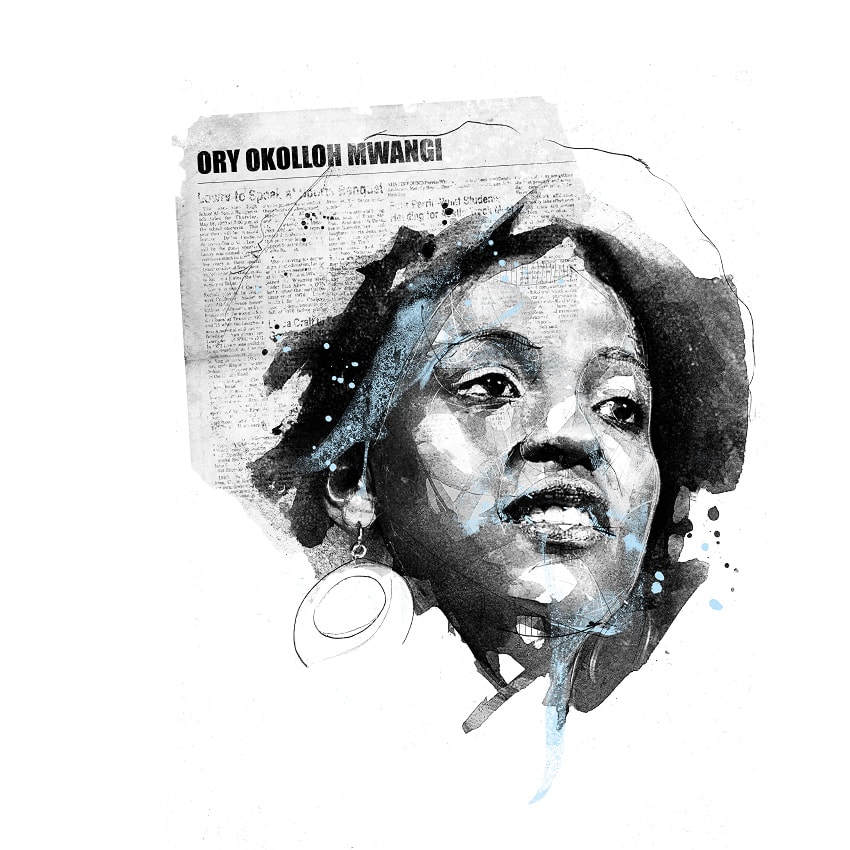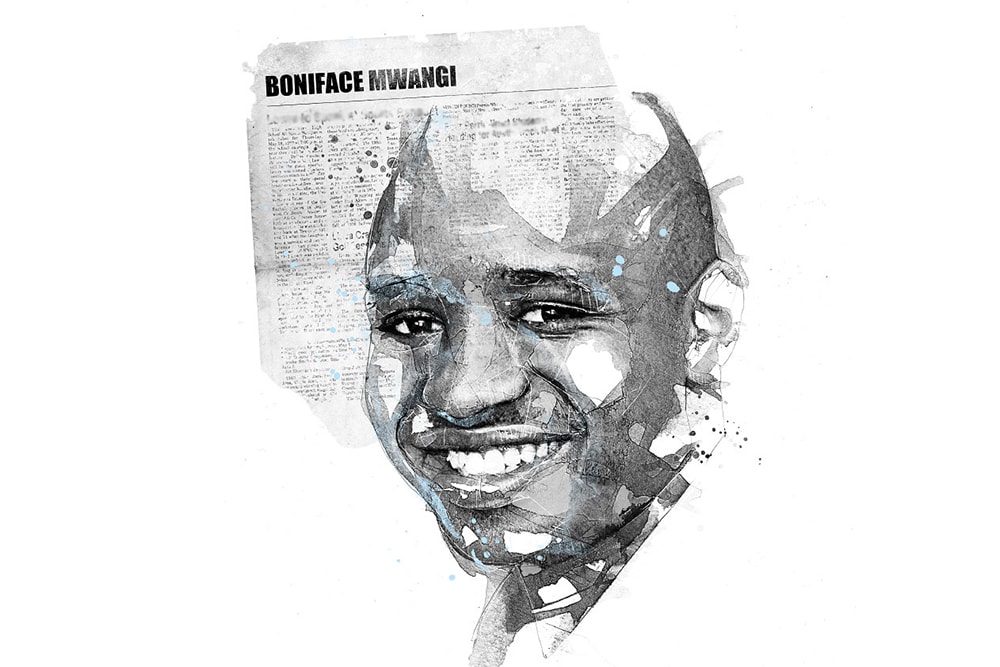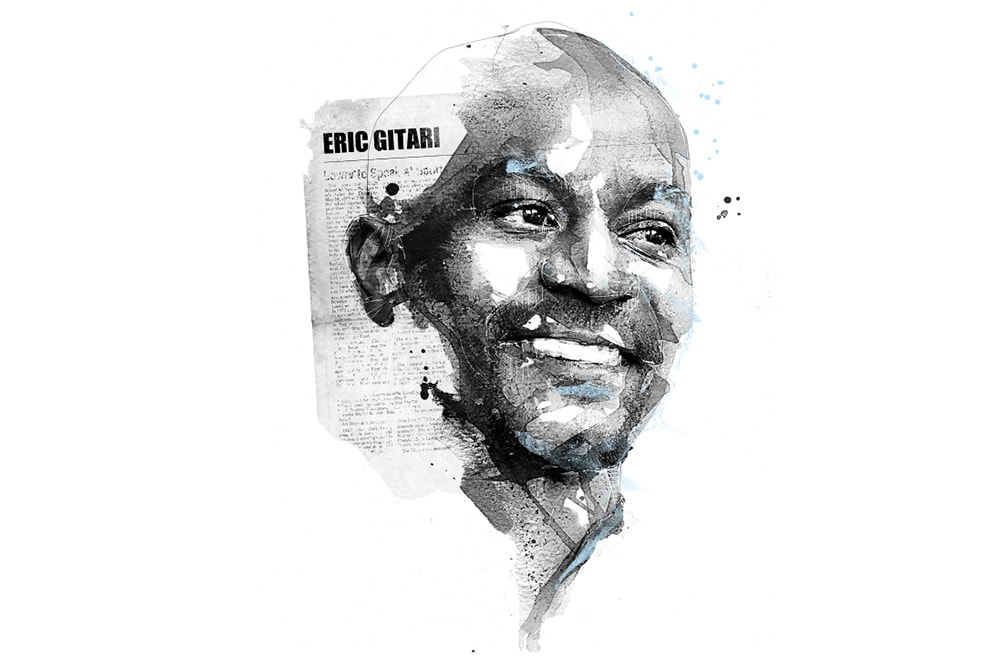Tech-savvy lawyer and activist Ory Okolloh Mwangi combines her skills and passion to increase government transparency and accountability.
"I believe that accountability stems from demand. You're not just going to be accountable out of the goodness of your heart. And we as Africans need to start challenging our leaders." - Ory Okolloh Mwangi in a speech at TEDGlobal, June 2007
Ory Okolloh Mwangi is known as the “Kenyan pundit” for good reason: not only does she have strong opinions – about government transparency, the role of entrepreneurship and African storytelling – she’s always been committed to helping others share their voices.
In a 2020 podcast, Dickens Olewe describes Mwangi as a powerhouse, working in civic spaces, always building and influencing. When asked about the key lessons she has learned while working to bring about change, Mwangi stressed the need for eternal vigilance, and the importance of being led by people who love their citizens.
The activist, lawyer and thought leader spent years working for legal practices and the World Bank in the United States before returning to Africa. She reportedly turned down a six-figure paycheck “because my passion was here [in Africa], and because I wanted to do things that were fulfilling. And because I’m needed here,” she said in a June 2007 TED Talk.
Mwangi has shared stories of her life before Harvard: her parents struggled to pay her school fees, which meant she was often kicked out of school. Her father, who died of AIDS, had difficulty accessing affordable medicine.
In 2005, Mwangi co-founded the government watchdog website Mzalendo (Swahili for “patriot” – a word she often uses to describe herself). The website, which she says was a labour of love, has a mission to “keep an eye on the Kenyan parliament.”
“We started this because we were tired of complaining about our politicians,” she shared. “You know, I believe that accountability stems from demand. You’re not just going to be accountable out of the goodness of your heart. And we as Africans need to start challenging our leaders.”
The Mzalendo site, which is still operational, aims to increase government transparency and accountability by putting draft bills online, letting people search by issue and review the progress of a piece of legislation. It debunks myths, issues “scorecards” that rate Members of Parliament and enables Kenyans to ask their MPs questions online.
In 2007, Mwangi moved on to her next massive undertaking: helping found the open-source platform Ushahidi (Swahili: “testimony”), which enables groups to crowdsource data needed for accountability and social activism. In 2008, when Kenya saw deadly post-election violence, Kenyans used the software to map eyewitness incidents of violence.
This useful tool has crossed over Kenyan borders, and Ushahidi’s software is used internationally for election monitoring, crisis response, and advocacy. It has been employed by groups including The Red Cross, BBC and Obama’s campaign team. Mwangi acted as the executive director of Ushahidi until 2010.
Continuing to work at the intersection of technology and governance, Mwangi became a policy manager for Google. She focused on increasing both internet access and original African content for Sub-Saharan Africa, with the goal of using her digital activism to create offline change.
In 2013, Mwangi began working for the Omidyar Network, as a director of investments, investing in groups that foster civic participation and increase government transparency and accountability. In 2014, Mwangi was named by TIME magazine as one of the most 100 influential people in the world.
She emphasizes the importance of sharing multidimensional stories. “When you focus just on the disasters, we’re ignoring the potential. So, what is to be done? First of all, Africans, we need to get better at telling our stories,” she shares. “Blogging is one way of doing that.”
Mwangi became known for her popular blog, Kenyan Pundit, which features commentary on topics including Kenya’s constitution, politics and the development and aid sector. She is a prolific tweeter on socio-political issues, with over 396,000 followers.
Mwangi is a realist. In 2006, she said: “Blogs aren’t going to overthrow Mugabe any time soon. But perhaps blogs can inspire ‘micro-activism’ which can cause big change in a small community.”
Nanjira Sambuli, a Kenyan researcher and policy analyst, has written that there is a sentiment that online activism does not translate to real life. “You have heard it before: ‘Kenyans love to talk on [Twitter] but won’t show up on the streets.’ ‘Kenyans make noise online but won’t show up offline.’” She writes about the sentiment that “those who engage in street protests are more patriotic, more serious, more focused, while the rest are ‘armchair activists.’”
While Mwangi believes in the power of online activism, she recognises it cannot stand alone. “If you look at the uprisings in Egypt and Tunisia – even Occupy Nigeria here – it might have been spurred and organized online, so technology plays the role of a facilitator, but at the end of the day the real impact was felt when the people went out to the street,” she told Forbes magazine.
With a long list of accomplishments under her belt and over a decade of pursuing her passion for justice and fighting for rights, Mwangi decided to take time off to think about what she wants to do next.
She publicly announced her resignation as managing director at the Omidyar Network and Luminate Group – which are both part of The Omidyar Group in Africa – on 7 April 2020, stating that “this new uncertain world presents opportunities to reset”.
Although Mwangi’s career spans a range of sectors – technology, governance, entrepreneurship and philanthropy – a common thread unites them. “We see so much potential within the continent and the singular to my work is to find means to tap into that potential,” she told Forbes. “So it’s about… saying that at least I did my little thing to make sure that we lived up to our potential as a continent.”
Illustration by Florian Nicolle


